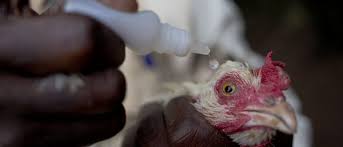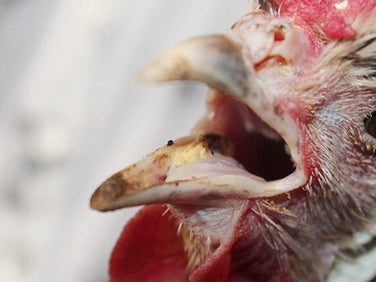
March 17, 2025
Causes of Dogs Refusing to Eat, Being Lethargic, and Lying
- huy tran
As a pet owner, seeing your beloved dog refuse to eat, appear lethargic, and lie around all day can be incredibly distressing. These symptoms often indicate that your dog is unwell, but the underlying causes can vary widely, from minor issues to serious health conditions. In this article, we will explore the signs of illness in dogs, the potential causes of these symptoms, effective treatment methods, and essential care tips. As a veterinary expert, I aim to provide you with actionable advice to help your furry friend recover quickly and safely.
Signs to Recognize When Your Dog Is Sick

- Changes in Appetite: Refusing food or water, or eating significantly less than usual.
- Lethargy: Lack of energy, reluctance to play, or excessive sleeping.
- Behavioral Changes: Increased irritability, withdrawal, or hiding.
- Physical Symptoms: Vomiting, diarrhea, coughing, sneezing, or nasal discharge.
- Changes in Appearance: Dull coat, weight loss, or pale gums.
- Difficulty Moving: Limping, stiffness, or reluctance to stand or walk.
Causes of Dogs Refusing to Eat, Being Lethargic, and Lying Around
Medical Causes
- Infections: Bacterial, viral, or parasitic infections (e.g., parvovirus, kennel cough, or worms) can cause loss of appetite, fatigue, and lethargy.
- Gastrointestinal Issues: Conditions like gastritis, pancreatitis, or intestinal blockages can lead to discomfort, nausea, and refusal to eat.
- Dental Problems: Pain from tooth decay, gum disease, or oral injuries can make eating difficult or uncomfortable.
- Chronic Diseases: Conditions such as kidney disease, liver disease, or diabetes can cause systemic symptoms, including lethargy and appetite loss.
- Pain or Injury: Injuries, arthritis, or internal pain (e.g., from tumors) can make dogs reluctant to move or eat.
- Toxicity: Ingesting toxic substances, such as certain plants, human foods (e.g., chocolate, grapes), or chemicals, can lead to severe lethargy and loss of appetite.
Behavioral Causes
- Stress or Anxiety: Changes in the household, loud noises, or separation anxiety can cause dogs to become withdrawn and refuse food.
- Depression: Dogs can experience depression due to the loss of a companion (human or animal) or major life changes, leading to lethargy and disinterest in food.
Environmental Causes
- Dietary Changes: Switching to a new food brand or type too quickly can upset your dog’s stomach, causing them to refuse to eat.
- Weather or Temperature: Extreme heat or cold can make dogs less active and reduce their appetite temporarily.
- Age-Related Changes: Older dogs may naturally eat less and become less active, but sudden changes should not be ignored.
How to Treat a Dog That Refuses to Eat, Is Lethargic, and Lies Around

Step 1: Monitor and Assess
- Observe your dog closely for additional symptoms (e.g., vomiting, diarrhea, or difficulty breathing).
- Check for dehydration by gently lifting the skin on the back of your dog’s neck—if it doesn’t snap back quickly, your dog may be dehydrated.
- Take your dog’s temperature using a pet-safe rectal thermometer. A normal dog temperature is 101–102.5°F (38.3–39.2°C). A fever (above 103°F) or low temperature (below 100°F) requires immediate veterinary attention.
Step 2: Immediate Home Care
- Encourage Hydration: Offer fresh water or ice cubes to lick. If your dog refuses to drink, you can try offering low-sodium chicken broth (without onions or garlic).
- Tempt with Food: Warm up their food slightly to enhance the aroma, or offer bland foods like boiled chicken and rice if your dog has an upset stomach. Avoid forcing food, as this can worsen stress.
- Provide a Comfortable Environment: Ensure your dog has a quiet, warm, and comfortable place to rest.
Step 3: Veterinary Care
If symptoms persist for more than 24 hours or worsen, take your dog to a veterinarian immediately. Based on the diagnosis, treatments may include:
- Medications: Antibiotics for infections, anti-inflammatory drugs for pain, or anti-nausea medication for gastrointestinal issues.
- Fluid Therapy: Intravenous or subcutaneous fluids to treat dehydration.
- Diagnostic Tests: Bloodwork, X-rays, or ultrasounds to identify underlying conditions.
- Dental Care: Professional cleaning or tooth extraction if dental issues are the cause.
- Surgery: In cases of blockages, tumors, or severe injuries, surgical intervention may be necessary.
Step 4: Long-Term Management
For chronic conditions, your veterinarian may recommend ongoing treatments, such as dietary changes, supplements, or medications to manage symptoms and improve quality of life.
Seeing your dog refuse to eat, become lethargic, and lie around can be alarming, but understanding the potential causes and knowing how to respond can make all the difference. Whether the issue is a minor upset stomach or a serious medical condition, prompt action and proper care are key to helping your dog recover.




